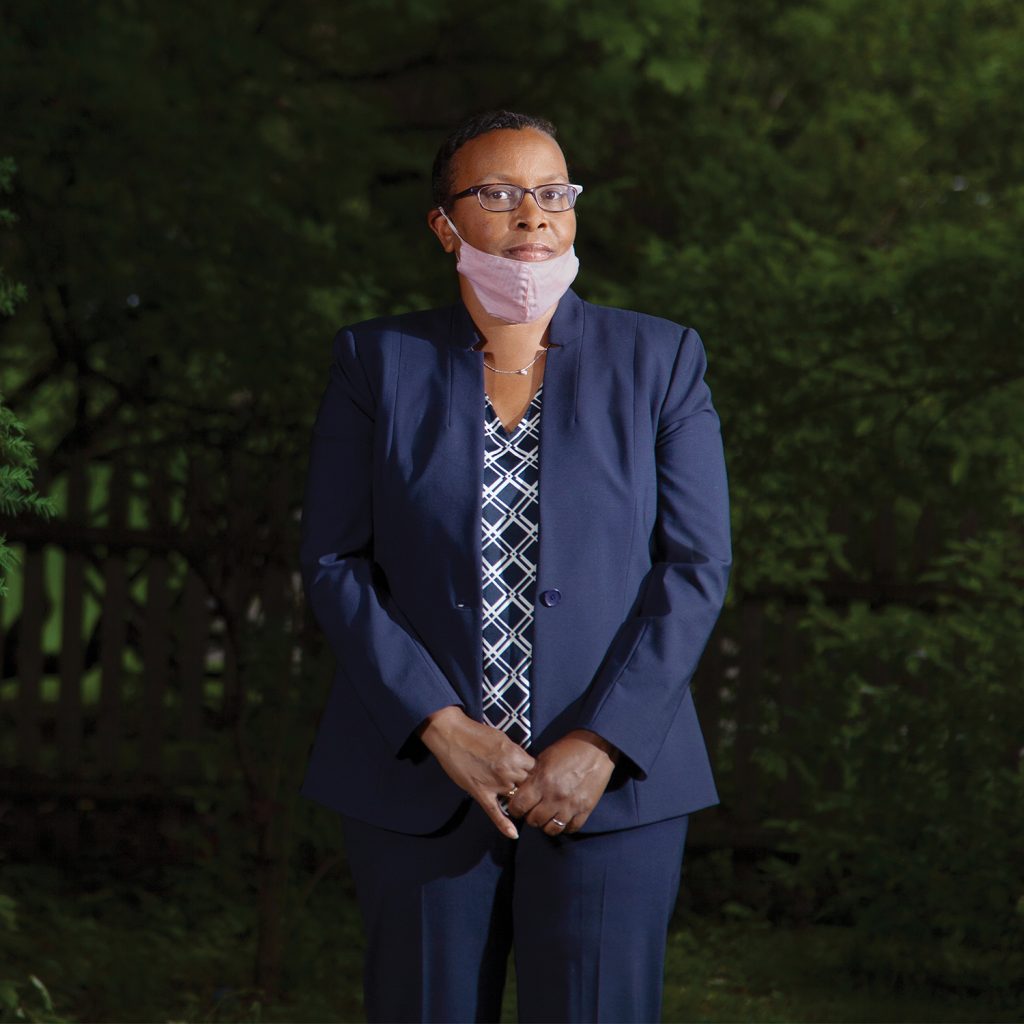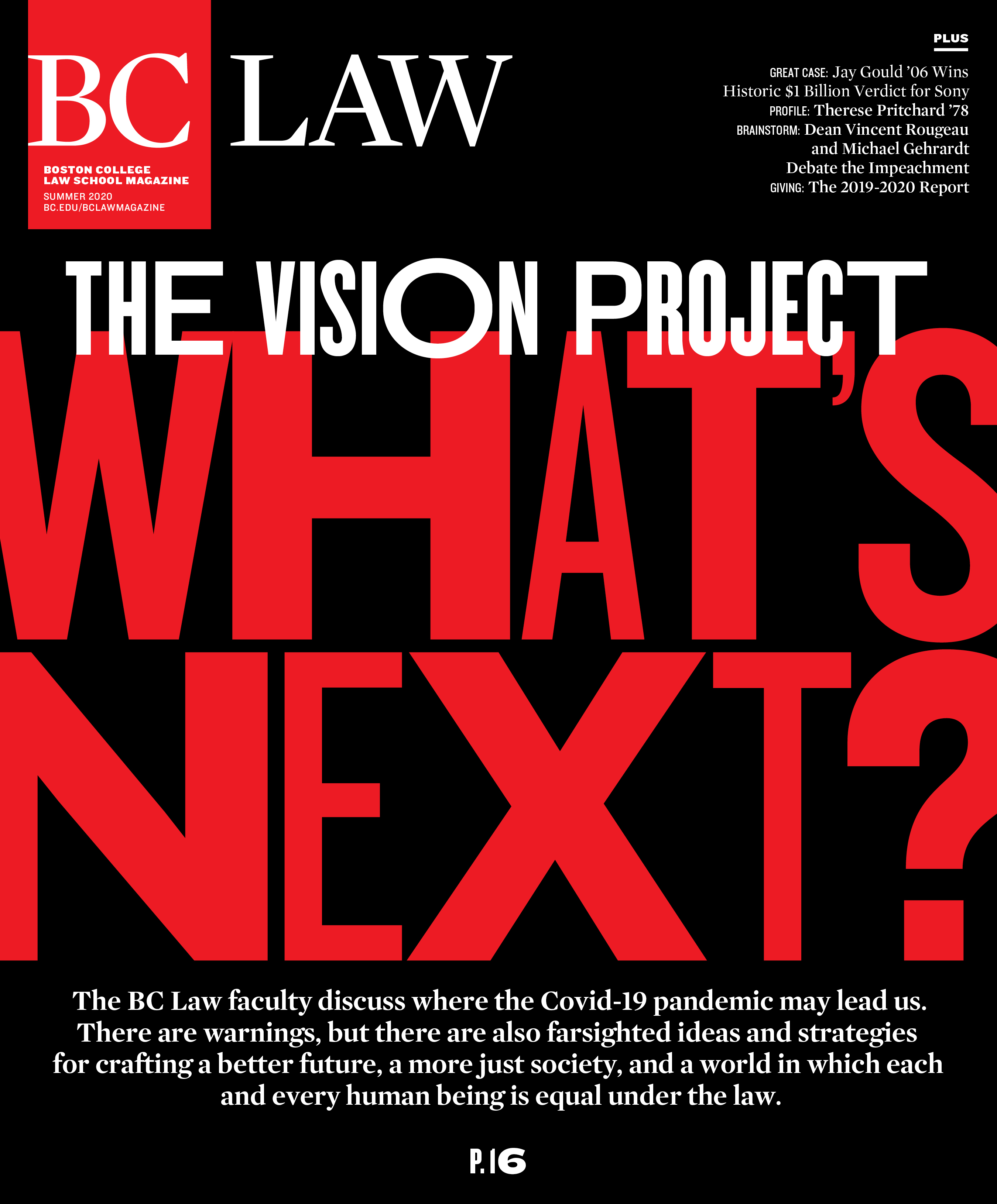Professor Renee Jones is Associate Dean for Academic Affairs. She teaches and writes on corporate and securities law, with a focus on the impact of enforcement practices on corporate ethics and integrity.
Historically, how did American business and government cooperate for the sake of the nation? In previous crises, we have had government, corporations, and individual philanthropy working collaboratively to help the nation heal.
After September 11, in 2001, Wall Street and corporate America joined forces to raise money to aid those who suffered from the tragedy and to help rebuild New York City. After Hurricane Katrina, in 2005, the corporate sector increased its charitable giving in response to the devastation. During the 2008 financial crisis, government and business worked together to manage the economic recovery.
What stands out in this pandemic is the lack of coordination between government and business and between the federal government and the states. We’ve learned that, before the coronavirus hit, certain businesses tried to connect with government agencies to begin manufacturing Personal Protective Equipment (PPE). These efforts were either ignored or rejected by federal officials. The executive branch made little effort to coordinate manufacturing of ventilators. Not only were the states left to their own devices, we actually saw federal agencies interfering with states’ and hospitals’ efforts to secure the PPE they needed.
Describe the impact of this failure of cooperation. Chaos. Unnecessary chaos.Also, several examples of craven self-interest come to mind. Senators Richard Burr and Kelly Loeffler reportedly traded stock after they’d received official briefings about the health and economic risks presented by the coronavirus; at the same time they were assuring the public that Covid-19 risks were minimal. The president promoted hydrochloroquine not in the interest of public health, but perhaps because of his allies’ business interests. Moncef Slaoui, a former pharmaceutical executive, was appointed to lead Operation Warp Speed, the government’s effort to find a vaccine, despite personal investments that raise conflict of interest concerns. Large public corporations have accepted coronavirus relief funds [from the Paycheck Protection Program] that were meant to support small businesses.
How would you fix this? Change the tone at the top. We have a president who’s failed to disclose his own business interests and conflicts of interest. When the president is acting that way, it’s not surprising that other government officials would follow suit. Typically, shaming works to deter this kind of behavior, but not at this time, with this president. Others, including officeholders and business leaders, have followed the president’s example, figuring they can get away with it.
How has federalism helped us during this pandemic, and how has it failed? Conventional wisdom is that state and local governments are in the best position to understand and meet the needs of their citizens and to provide direct services, with the federal government providing expertise, experience, and the ability to marshal resources in ways that states cannot do alone. Many state and local governments are responding to the needs of their citizens, but they have looked in vain to the federal government for guidance, support, help, and resources. It’s that expertise, coordination, and seamless provision of resources that’s been lacking. Thus, the country is not responding competently to the pandemic.
What good do you hope comes out of this moment—not only from the pandemic, but also from the racial justice protests? The pandemic has exposed our country’s stark social inequities. It has disproportionally affected communities of color, with devastating economic and health consequences. The exposure of that level of inequity is likely contributing to the protest movement in response to the tragic killings of African Americans at the hands of police across the country. I hope these protests will lead to meaningful and lasting change.
To read other pieces in this issue’s The Vision Project, click here.



